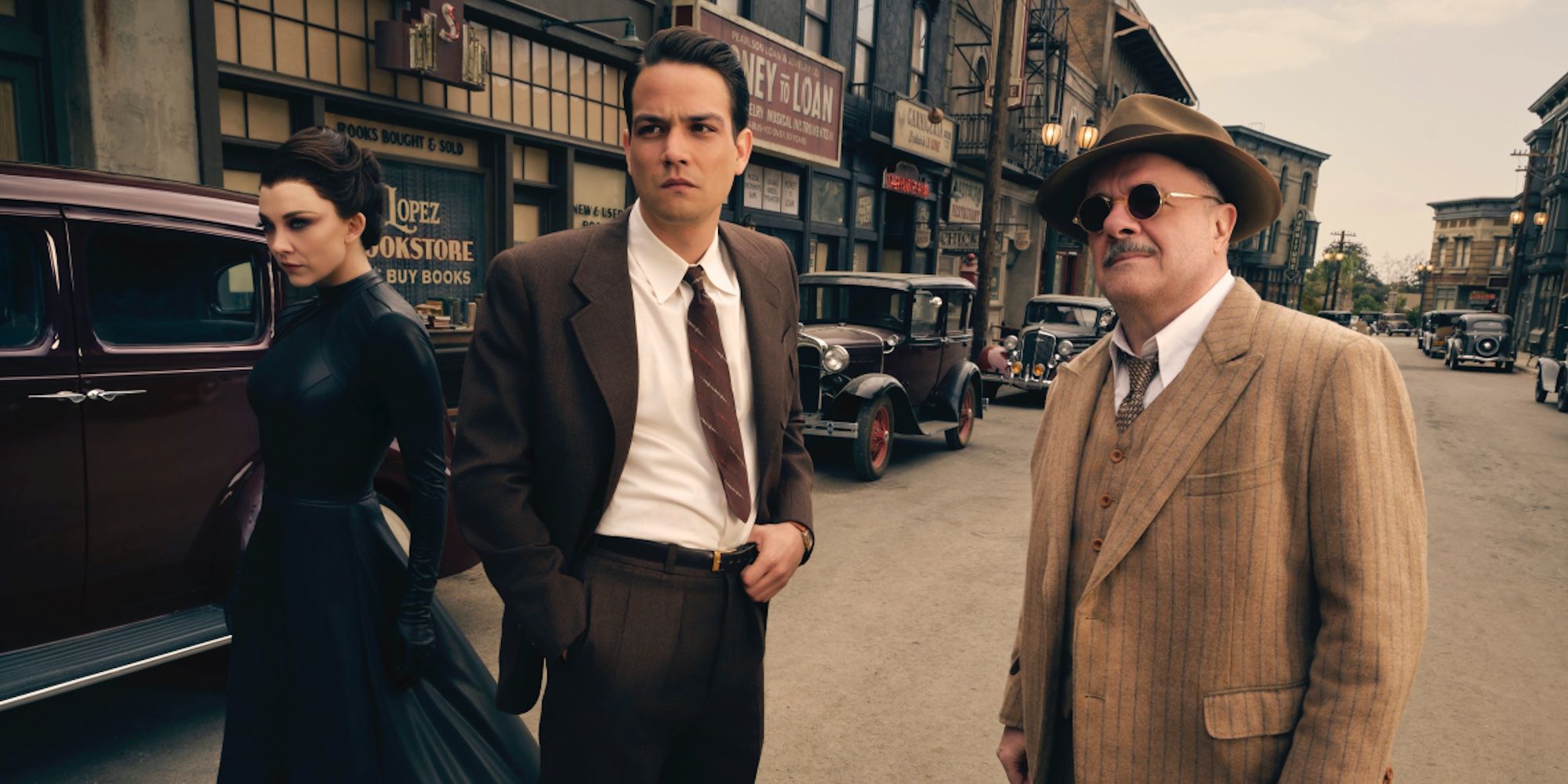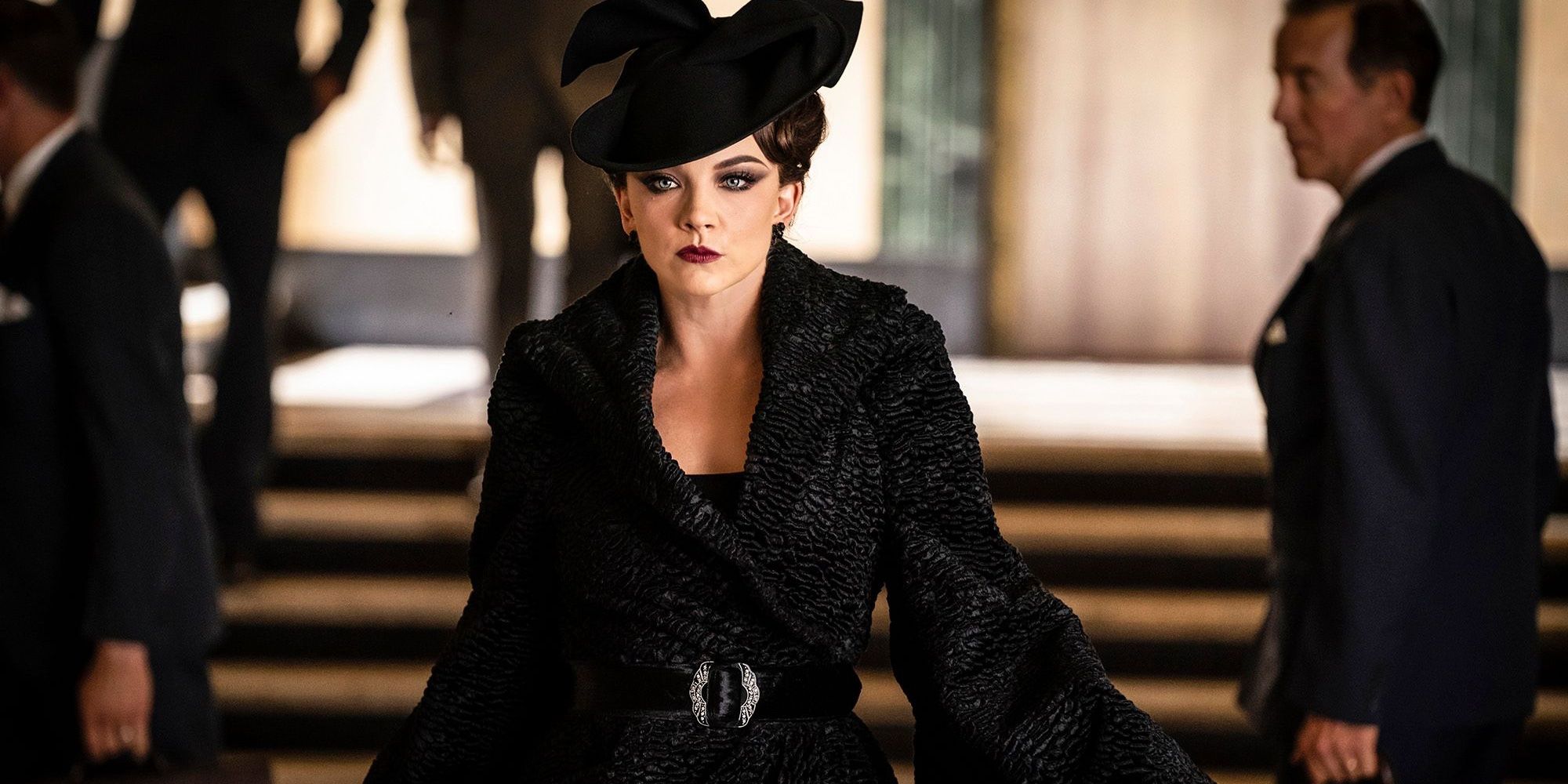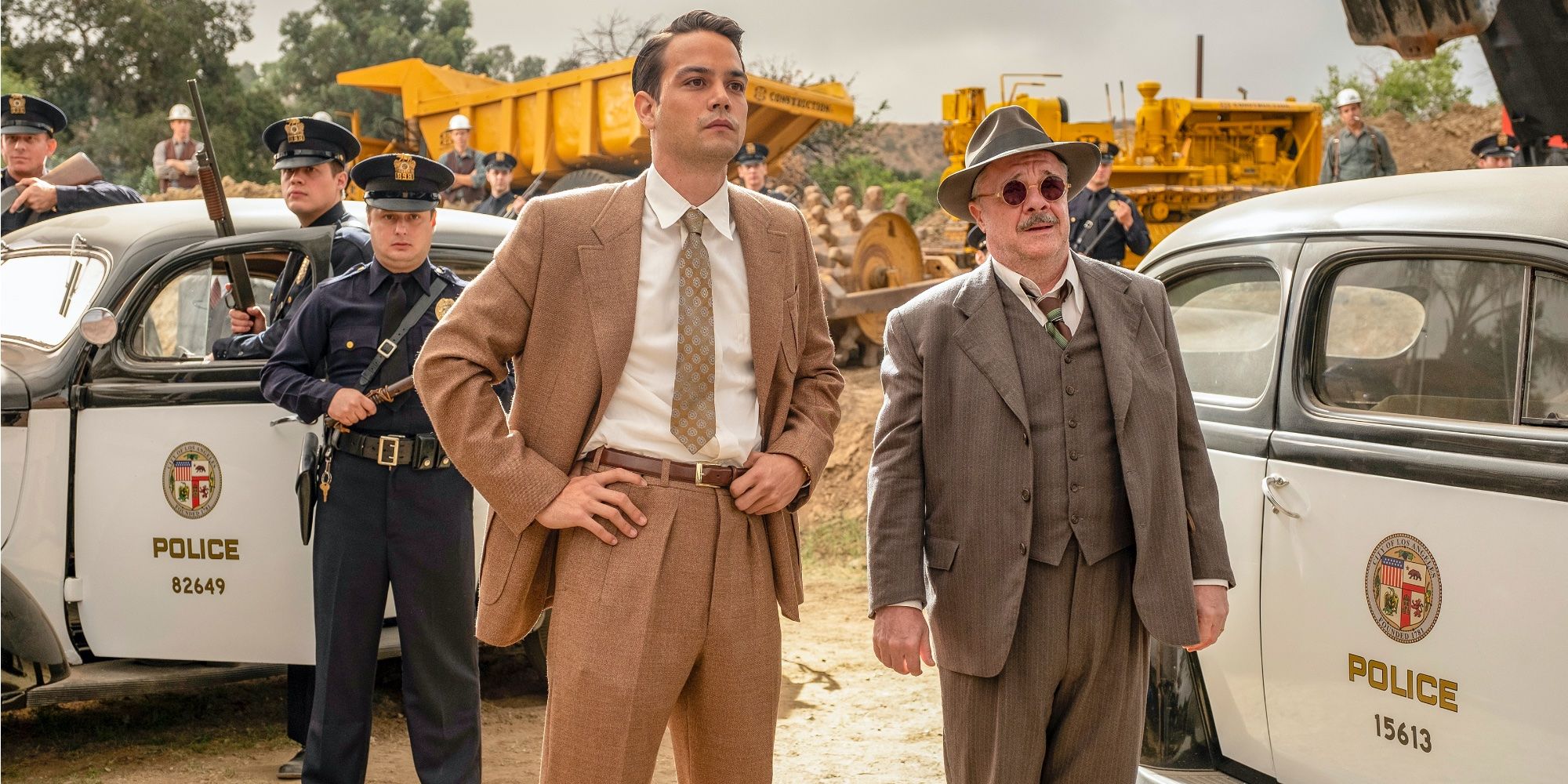
Unlike its predecessor, Penny Dreadful: City of Angels is not a gothic horror-romance complete with classic monsters of all shapes and sizes. Instead, the spinoff series pushes forward in time and location from Victorian London to 1938 Los Angeles, where creator John Logan dips his toe into everything from politics, racism, Nazis, immigration, religious fanaticism, and a little mysticism. The end result is a mishmash of ideas and characters that should have resulted in a strong ensemble anchored by a terrific performance from Natalie Dormer as a mischievous demon but instead indulges too much in Ryan Murphy-style maximalism, where an everything-and-the-kitchen-sink brand of television leaves little room for compelling storytelling.
Fans of the original Penny Dreadful will note from the start that City of Angels is only tangentially interested in the sort of supernatural elements that fueled a story anchored by fascinating characters played by Eva Green, Josh Hartnett, Timothy Dalton, and more. Instead, Logan’s new series sees Dormer as Magda, a shape-shifting demon hellbent on stirring up as much trouble among humankind as possible. Magda’s penchant for being in more than one place at a time (and in more than one guise) affords City of Angels a chance to maximize Dormer’s talents and her screen time as she influences various parallel storylines, like Councilman Charlton Townsend (Michale Gladis), a moronic political demagog in the making, or Dr. Peter Craft (Rory Kinnear), a German immigrant who spends his lunch hour promoting Nazism and spouting a familiar “America First” rhetoric. In both cases, Dormer is the literal devil on both men’s shoulders, but it’s not long before Magda's tricks feel more like a gag, one that will easily draw comparisons to Bugs Bunny’s fondness to disguise himself in an effort to befuddle the likes of Elmer Fudd or Yosemite Sam.
Though City of Angels aims to build a sprawling narrative that ventures into as many corners of Los Angeles and its rich history as possible, the many disparate threads introduced in the first hour and beyond struggle to form a cohesive storyline that’s half as potent or captivating as its predecessor. It’s not for a lack of talent, either, as City of Angels boasts an impressive cast that includes strong performances from Nathan Lane, Adam Rodriquez, Kerry Bishé, Piper Perabo, and Daniel Zovatto. But while Logan has cast his narrative net far and wide, the first four episodes made available to critics suffer from the problem of too many characters swirling around an indiscernible plot.

What’s more, City of Angels is absurdly unsubtle in its effort to take on a little bit of everything and draw an obvious comparison between 1938 Los Angeles and current events. Logan’s emphasis on making such parallels as obvious as possible leaves him precious little time to make this new series the one thing it should be: entertaining. The result is a show that’s often very silly but rarely much fun. Moreover, episodes are marked by rare bursts of frantic energy where a great deal happens, yet the consequences of those actions remain frustratingly indistinct. Instead, moments of extreme violence or wild character revelations are more a necessary release of tension resulting from the plot’s lack of forward momentum.
The series ostensibly functions as four or five series in one, and it’s clear very early on that there needs to be a culling of subplots if City of Angels is ever going to rise to the quality of its predecessor. Curiously, the biggest obstacle is also the series’ best asset: Dormer. Because Magda is working largely in the background, assuming many forms and letting Dormer have a lot of fun playing several different characters, she’s also not much of a tangible antagonist. None of the human characters — especially the ones she’s influencing directly — have any knowledge of her existence, much less her plans. And that leaves City of Angels and its denizens at an extreme disadvantage where they are asked to keep an absurd number of plates spinning for reasons that have yet to be (or may never be) disclosed.

While Lane and Zovatto make for an engaging buddy cop duo investigating the ritualistic killing of four affluent Los Angeles residents, they spend much of the first four episodes apart from one another, doing little to find the killer or why he (she, they?) would want to use the murders to incite a race riot. Instead, Lane is exiled in a subplot hunting Nazis, while Zovatto gets cozy with Bishé’s Sister Molly, the head of a Scientology-like religious organization headed up by a villainous Amy Madigan, who plays Miss Adelaide.
The same is true for nearly all the storylines Logan has running, and in four episodes they all appear ready to drift further apart rather than come together in a compelling and cohesive story ready to make use of its terrific cast. As such, City of Angels becomes something of a wait-and-see drama, one that remains appealing because of its pedigree and the raw talent that’s involved. But those elements will only take it so far, and sooner rather than later Penny Dreadful: City of Angels must become something more than a series of promising ideas.
Penny Dreadful: City of Angels premieres on Sunday, April 26 @10pm on Showtime. The first episode is available to stream.
https://ift.tt/3aDgoih
April 25, 2020 at 06:00AM




